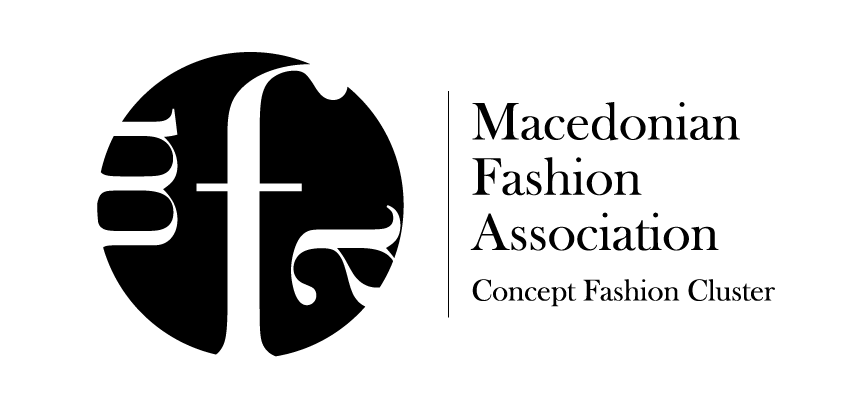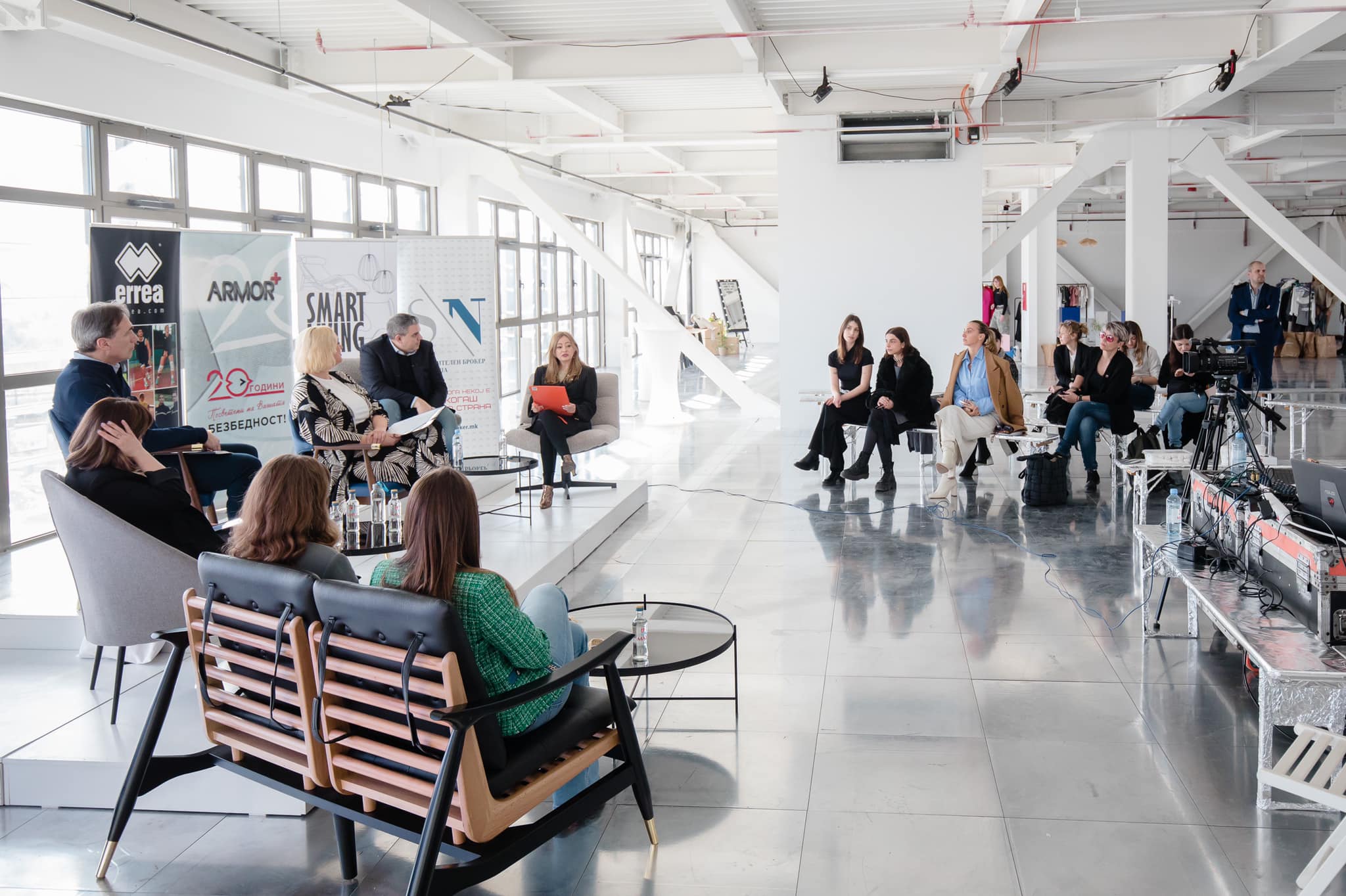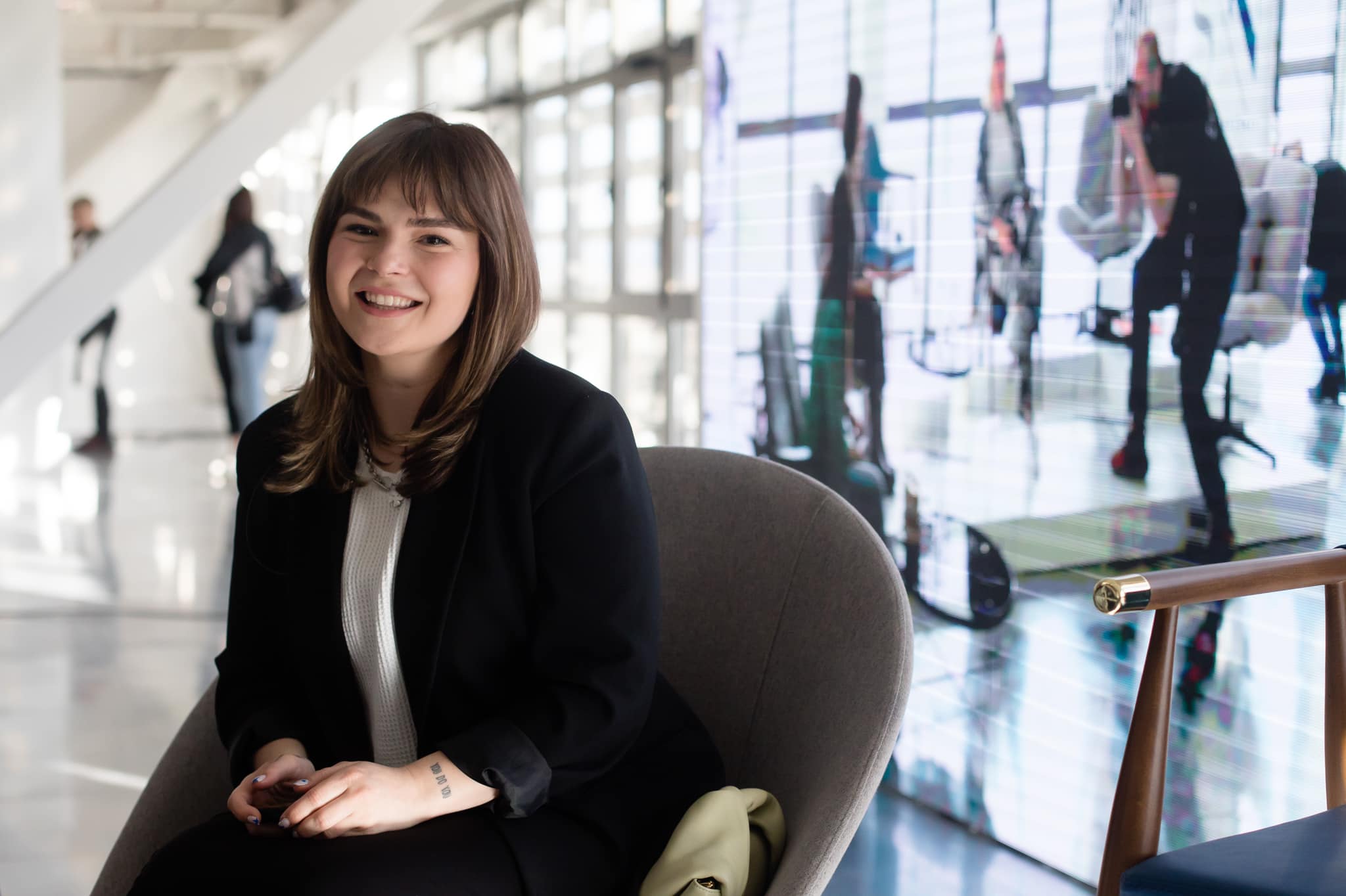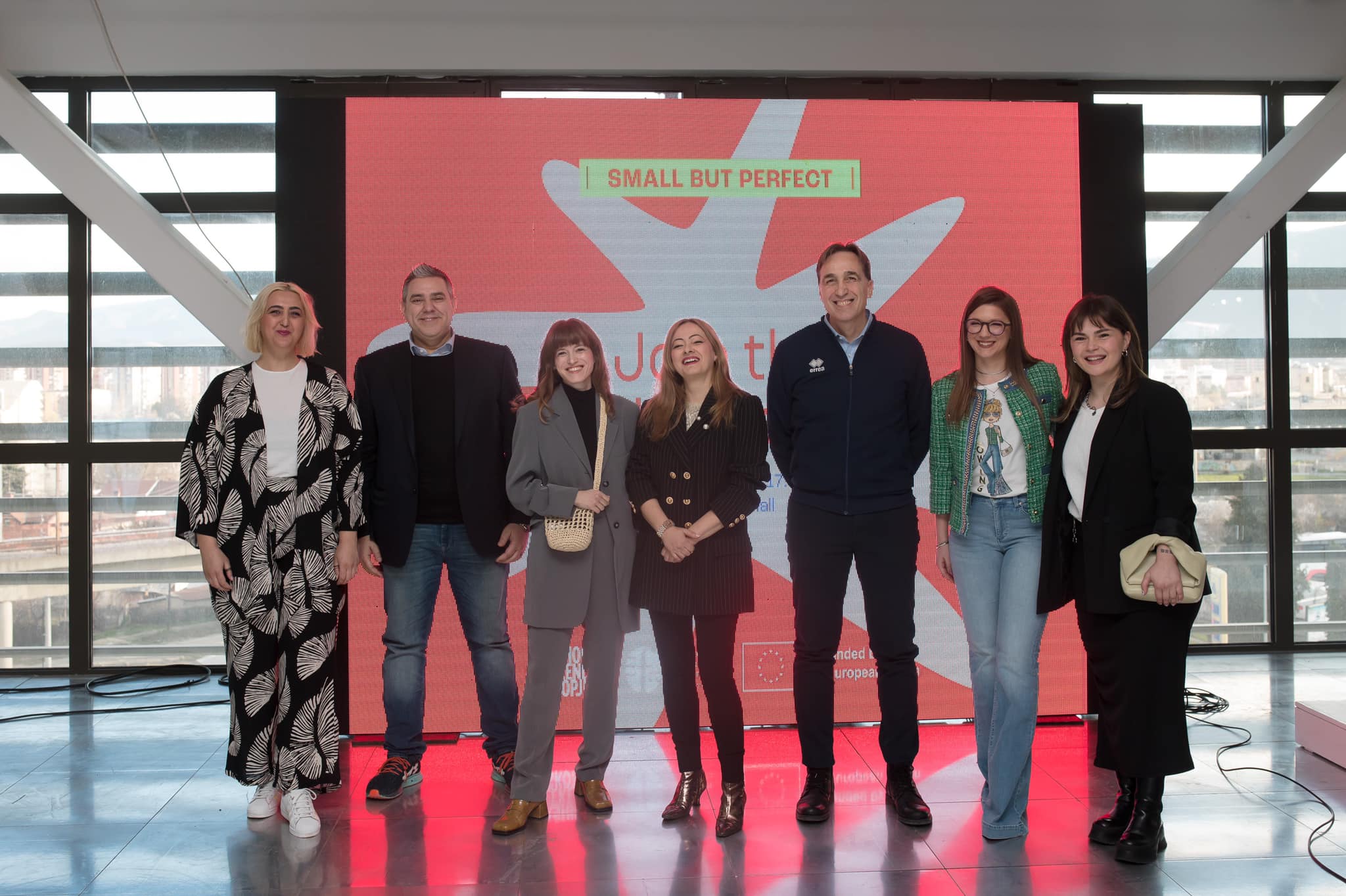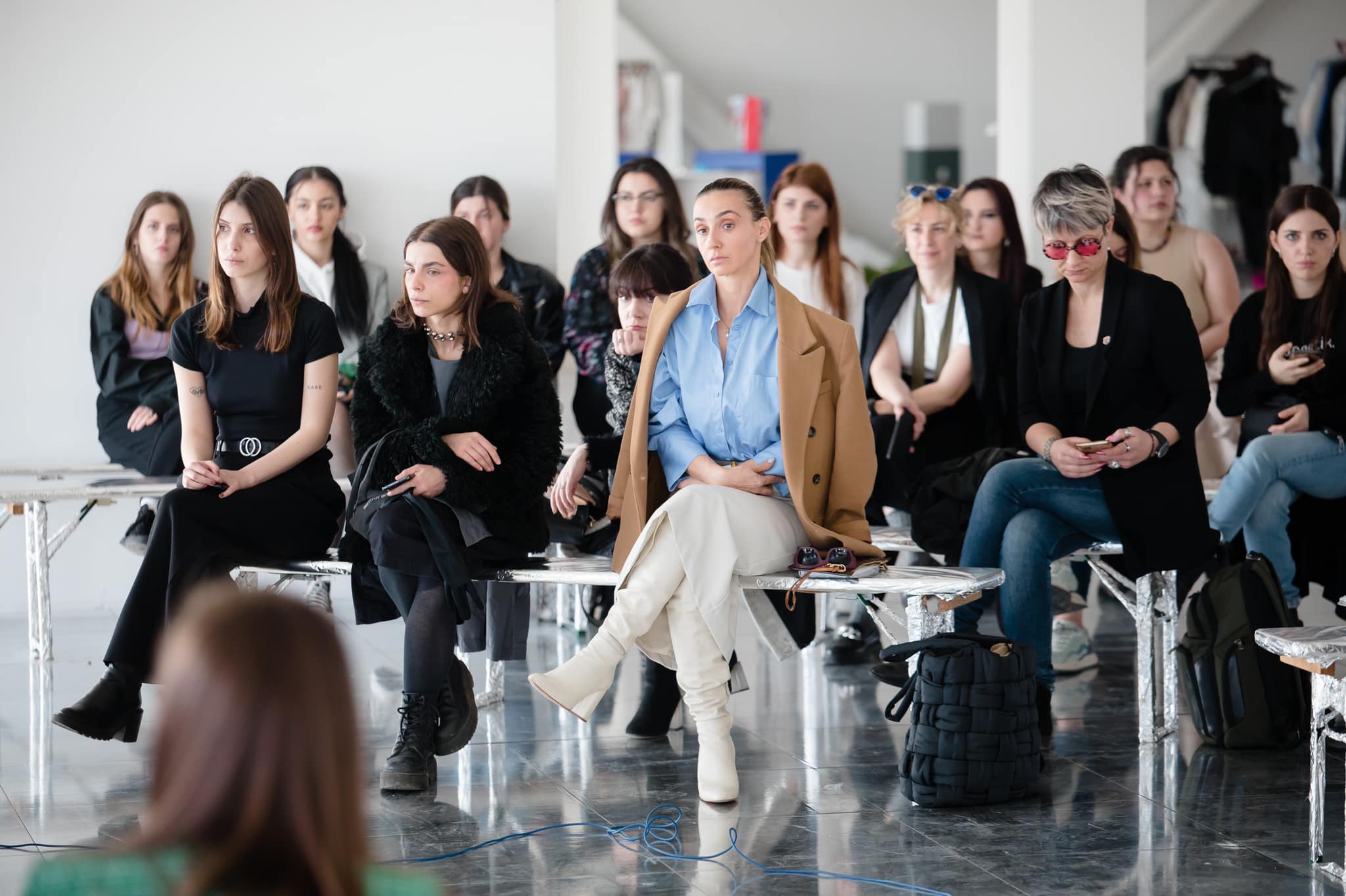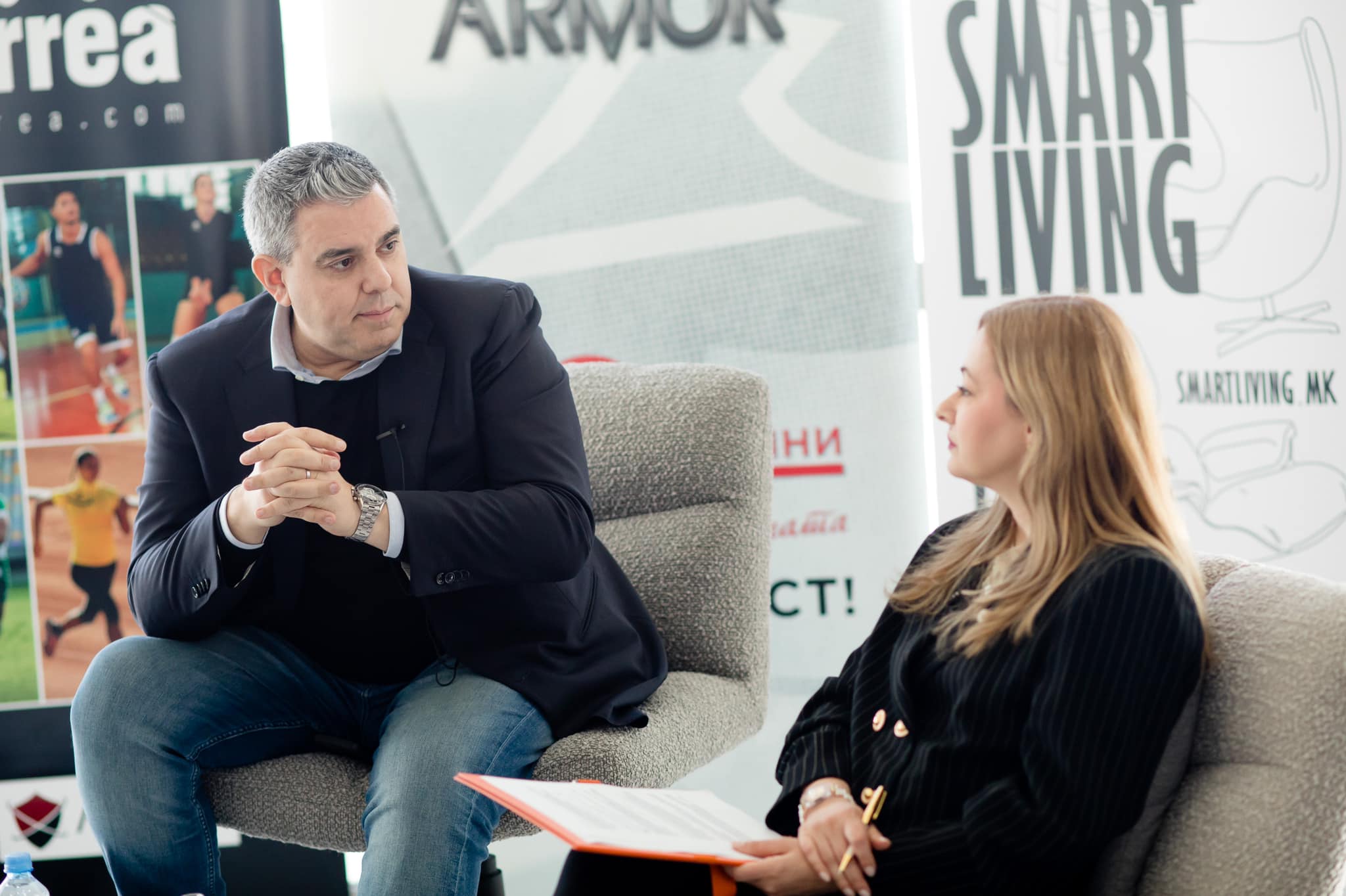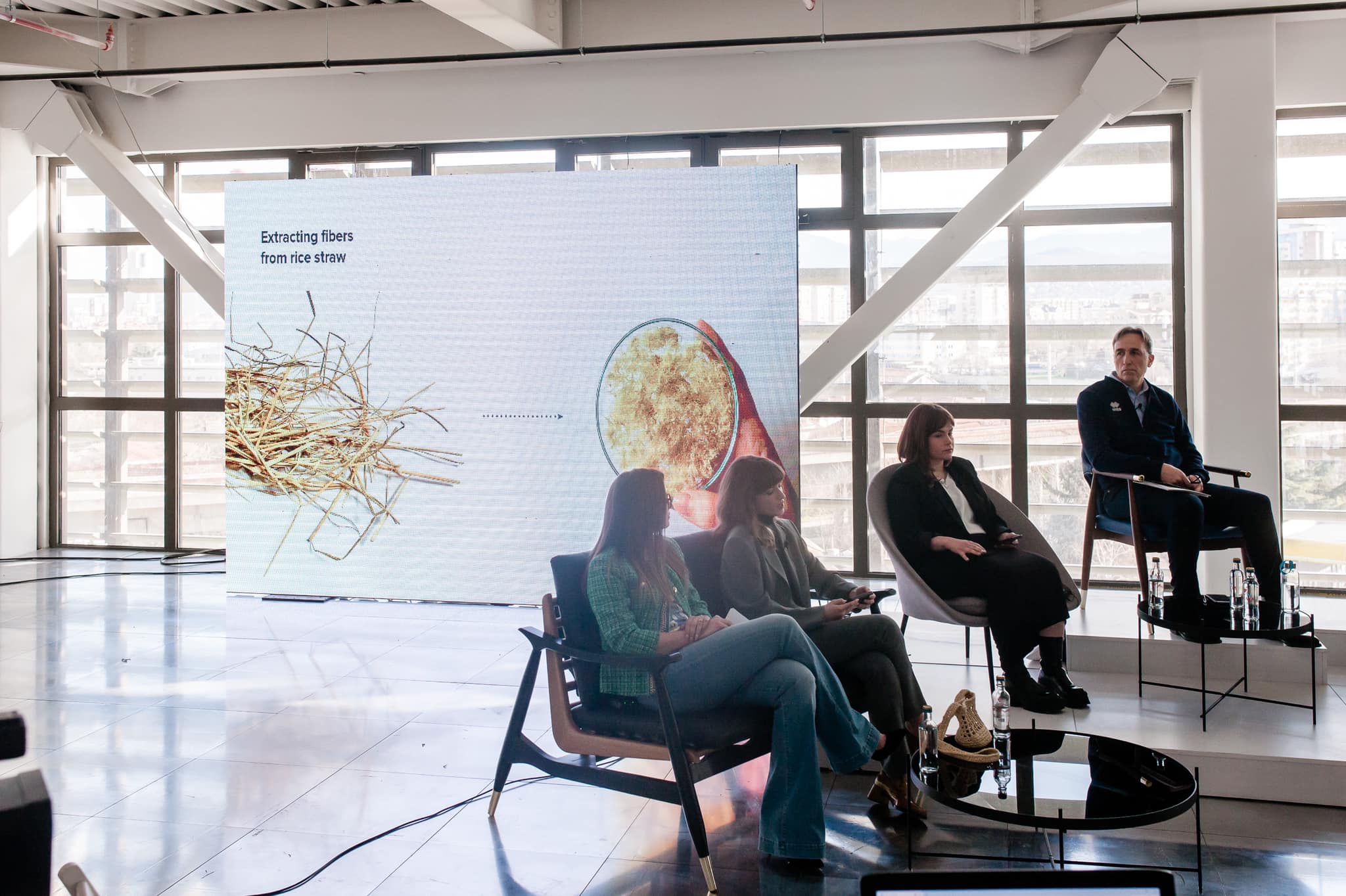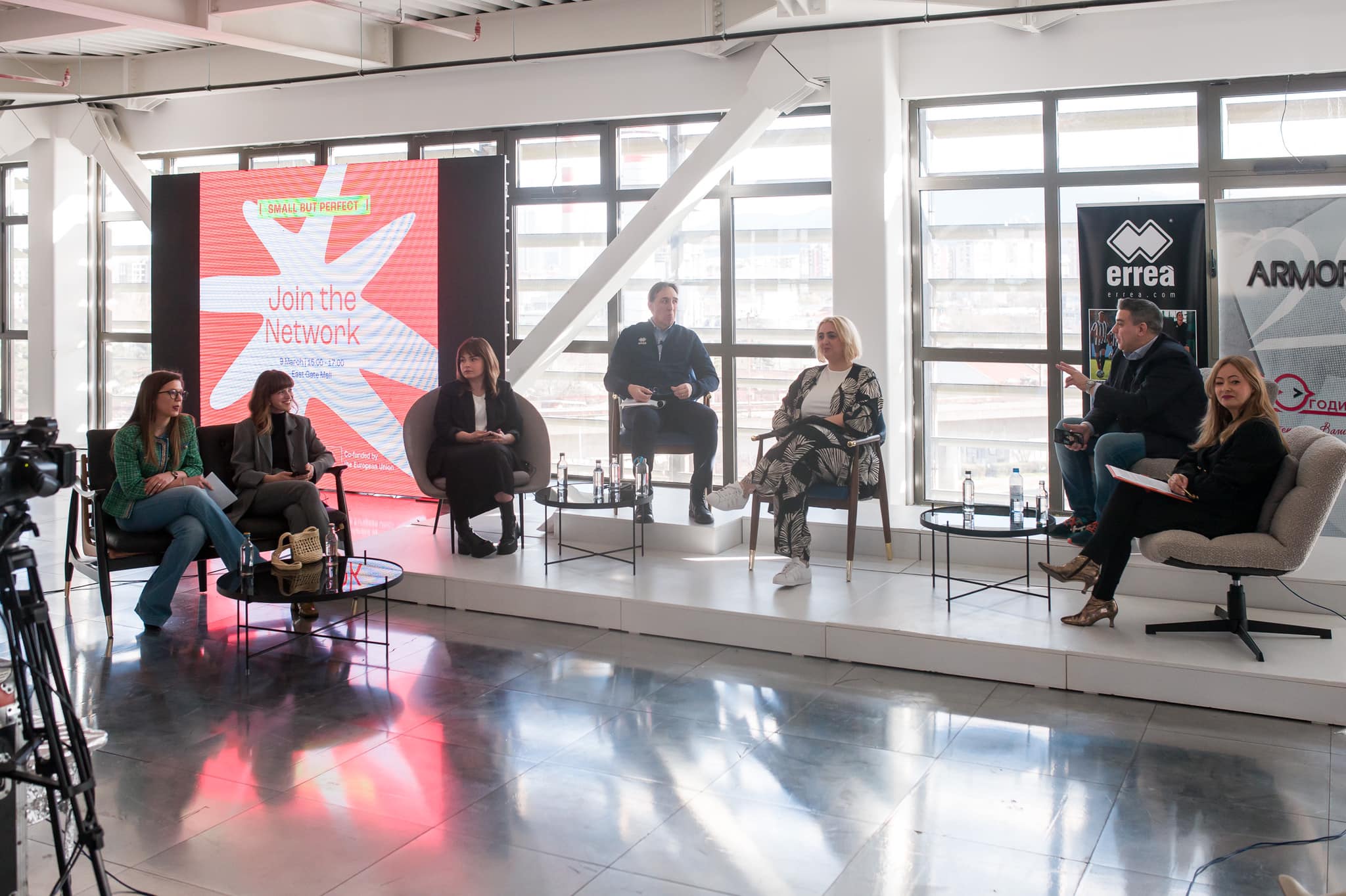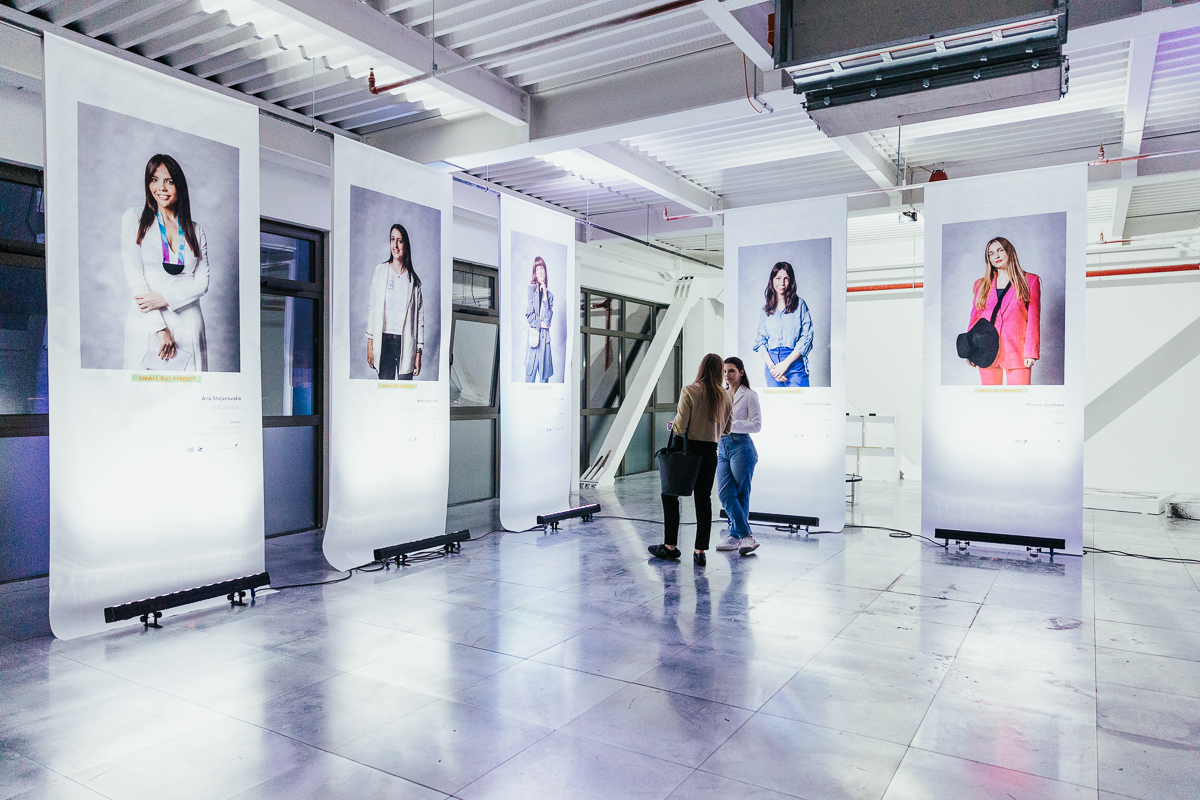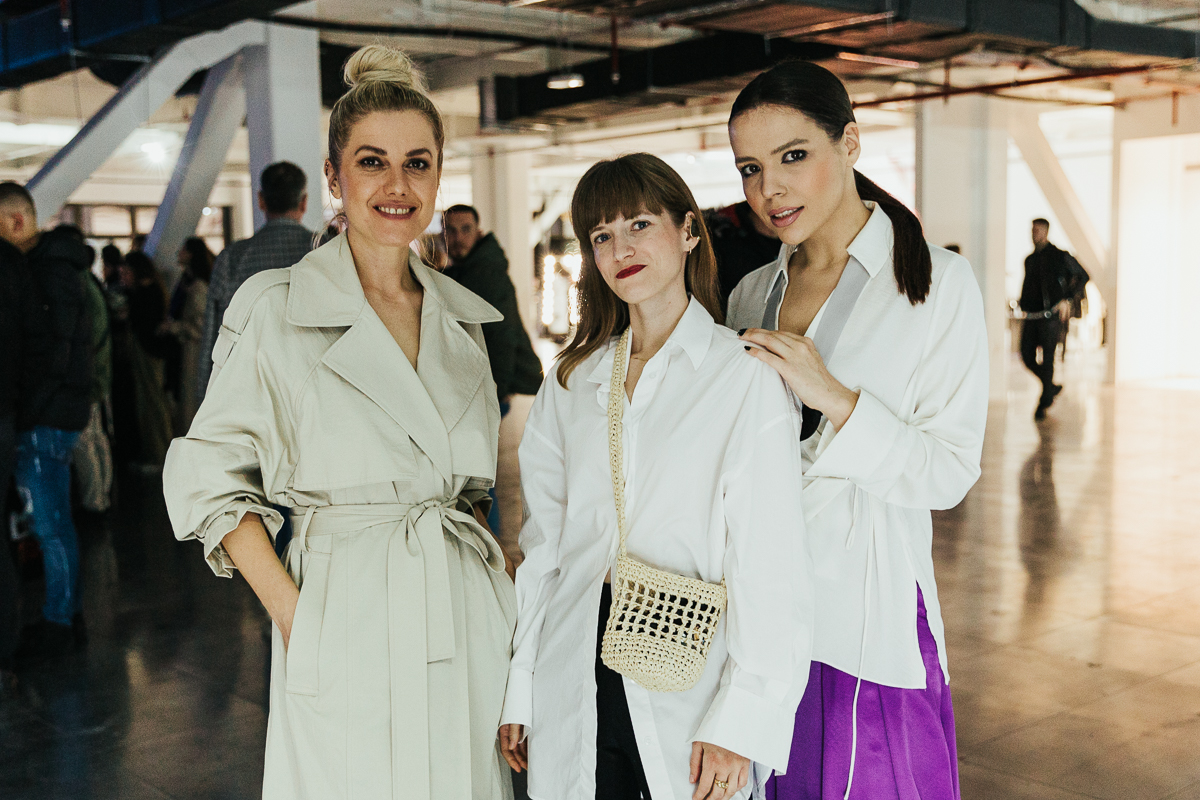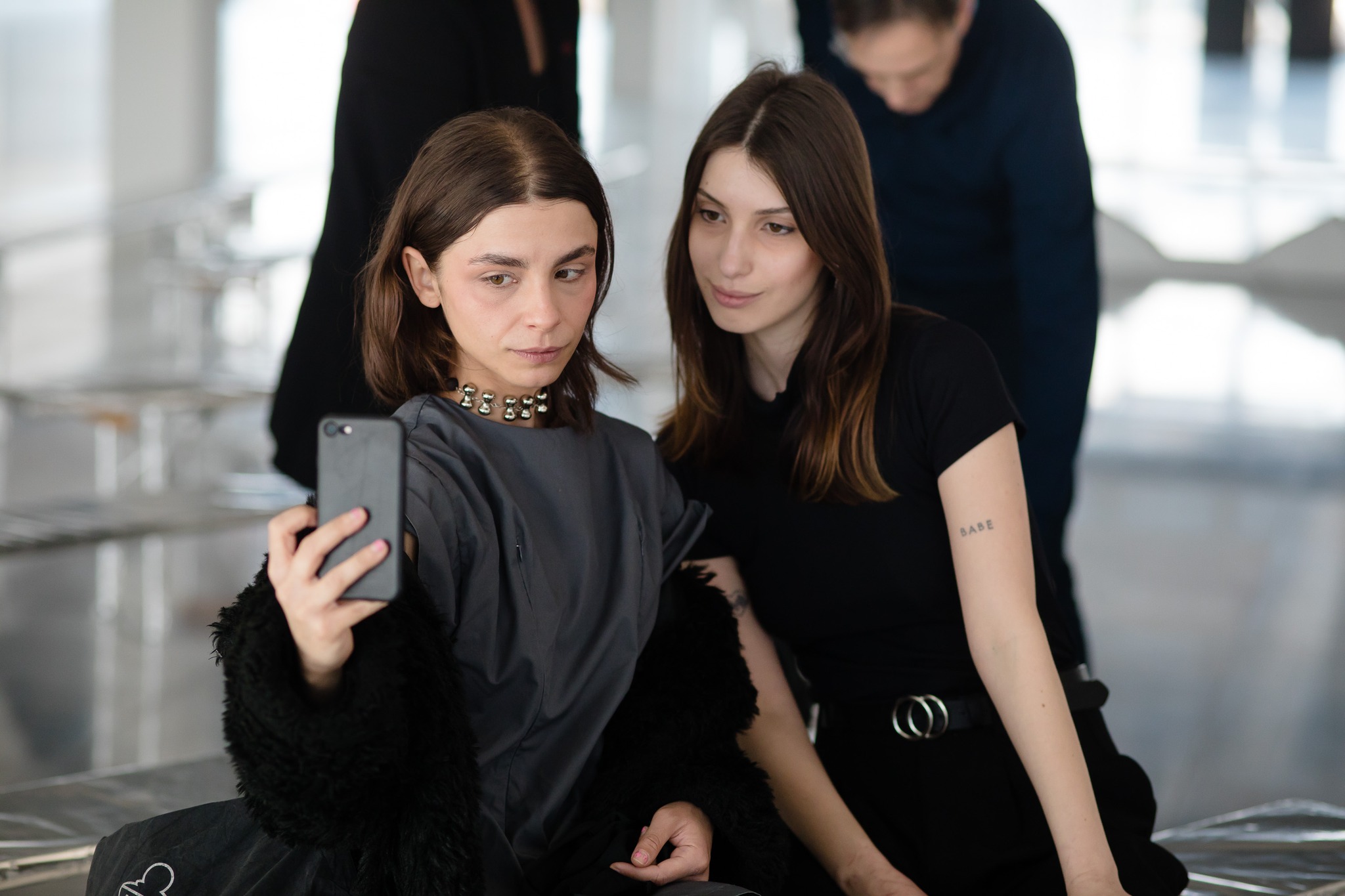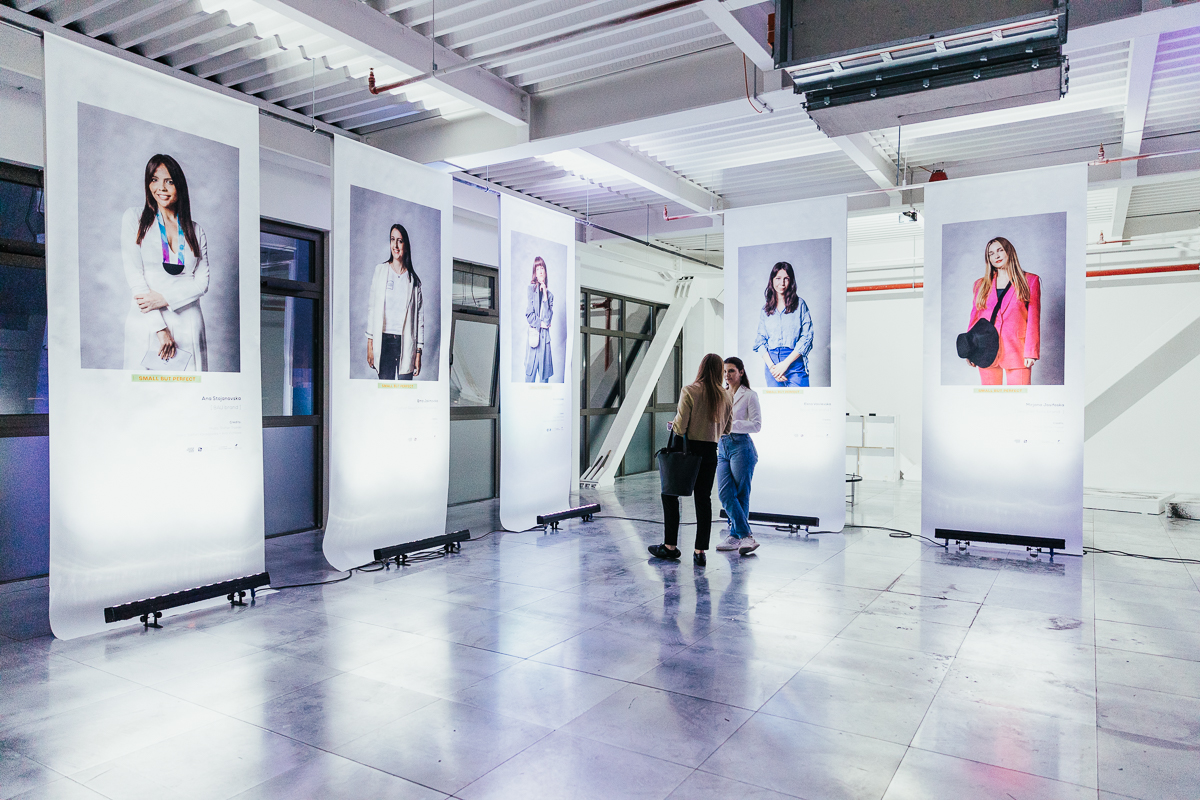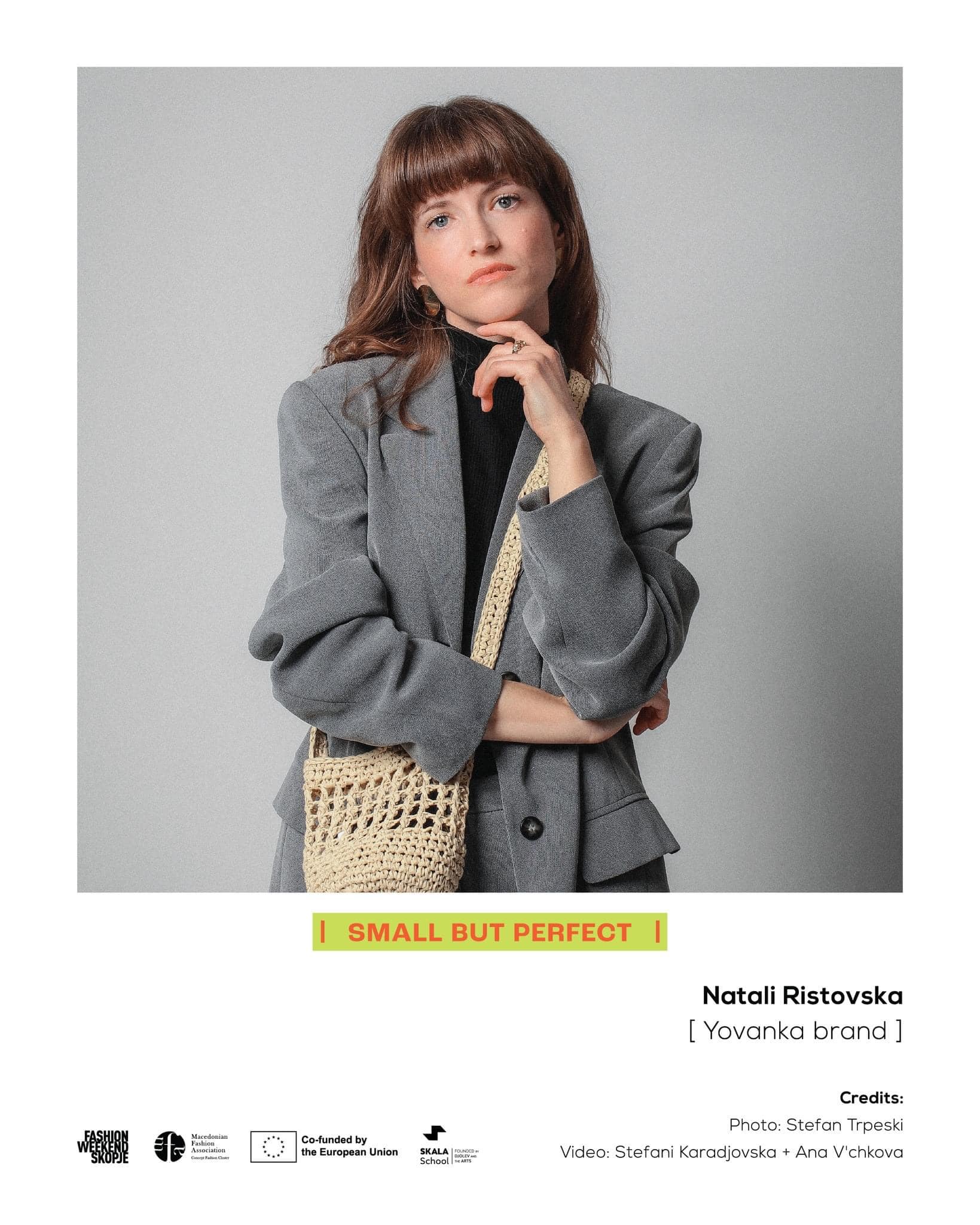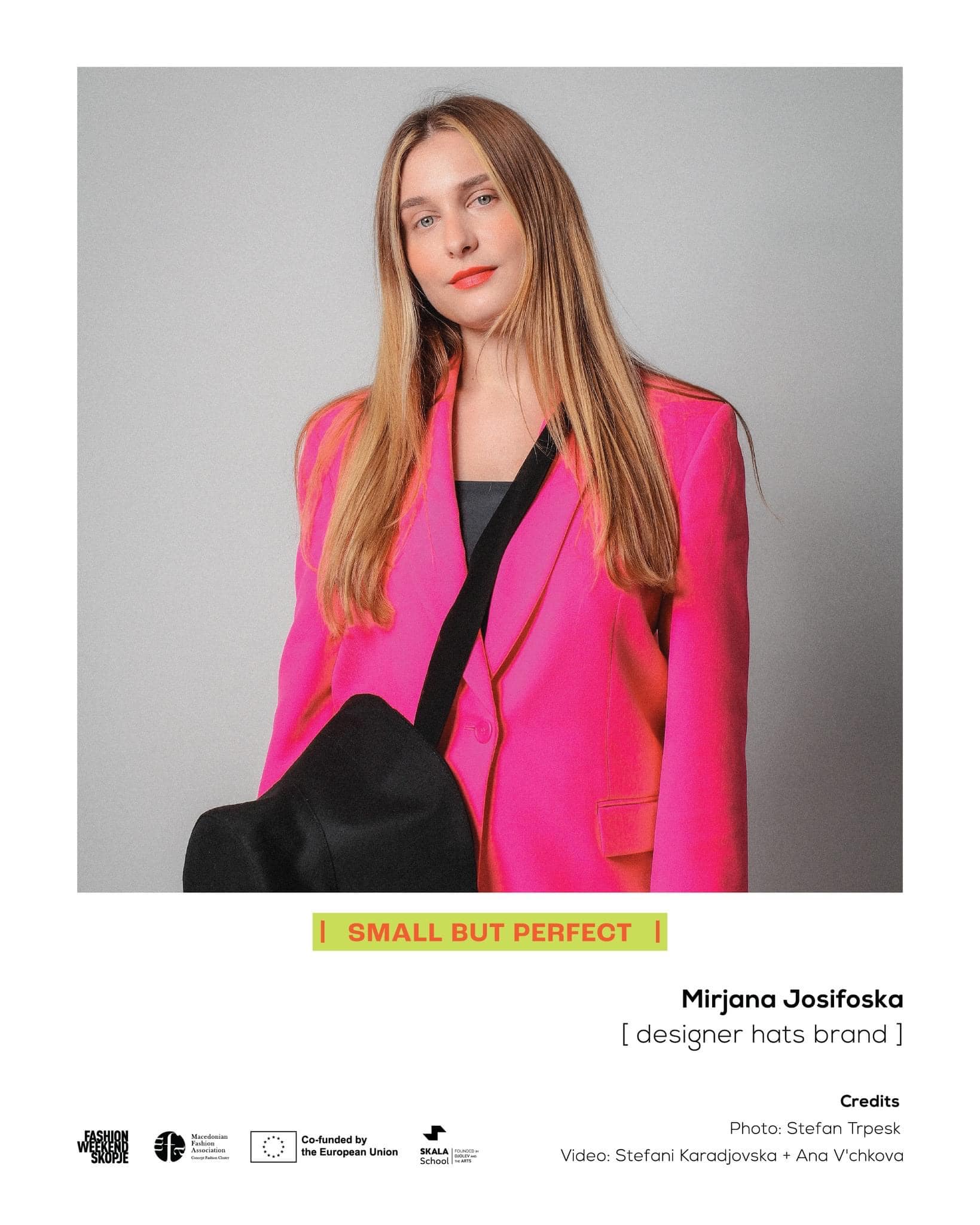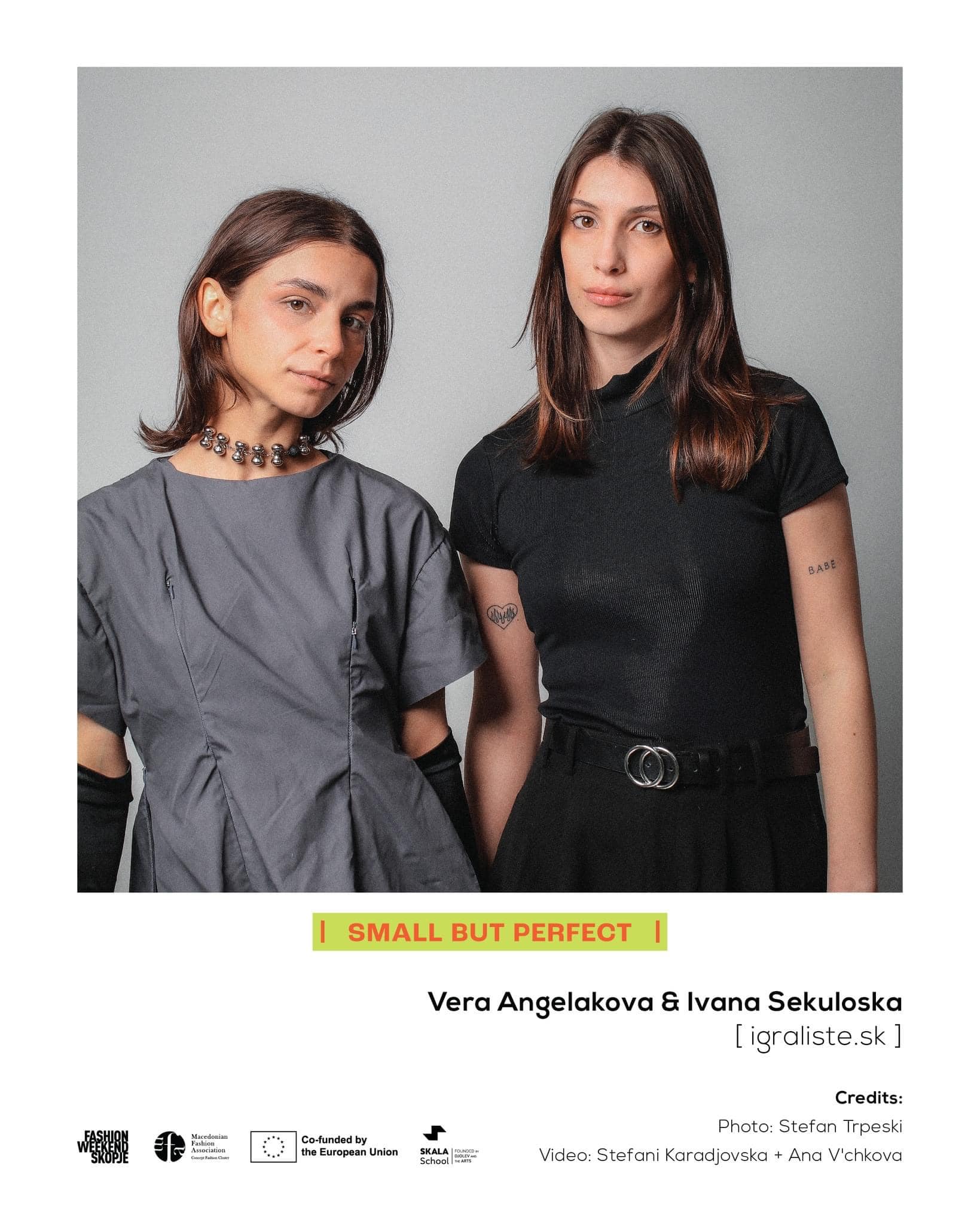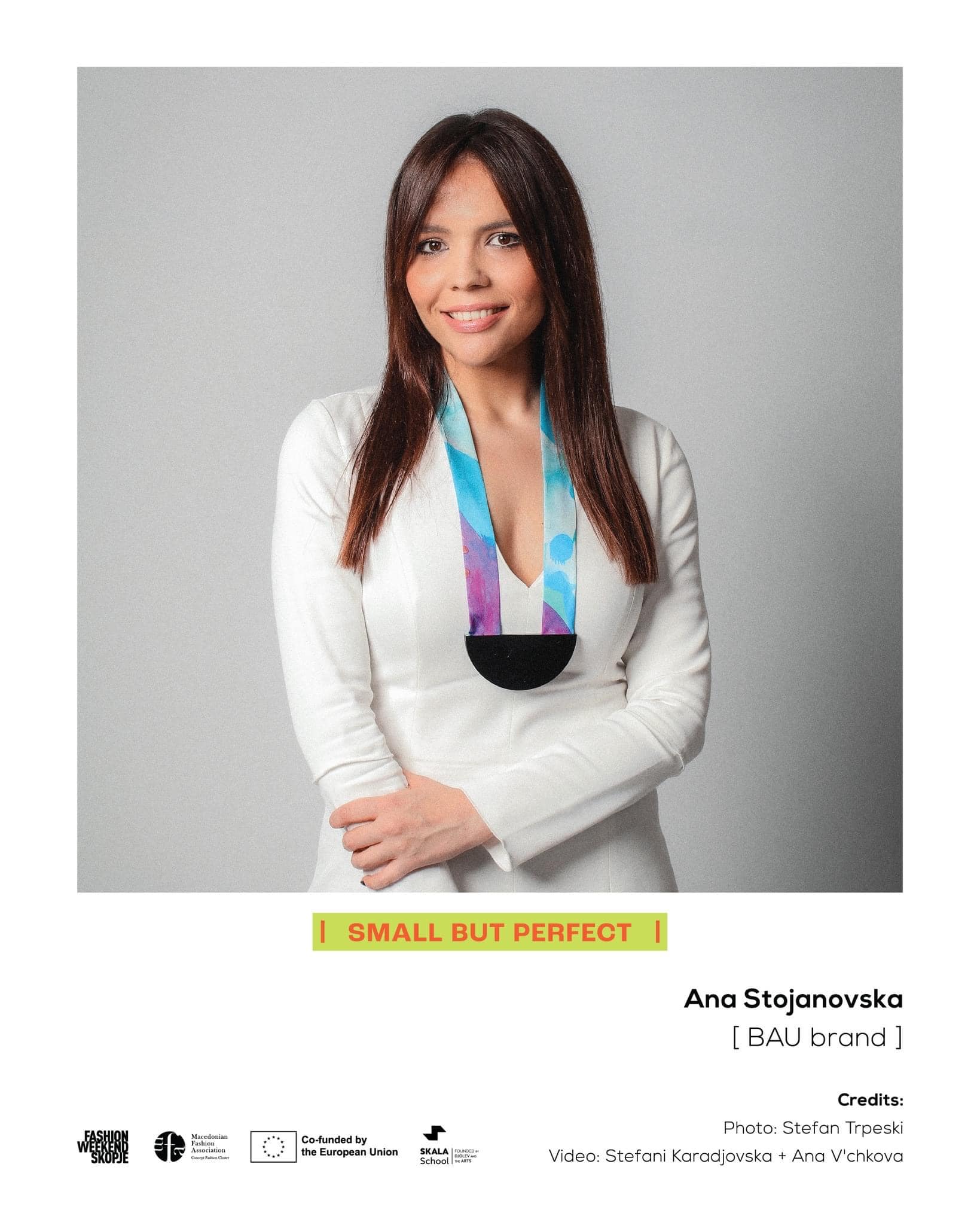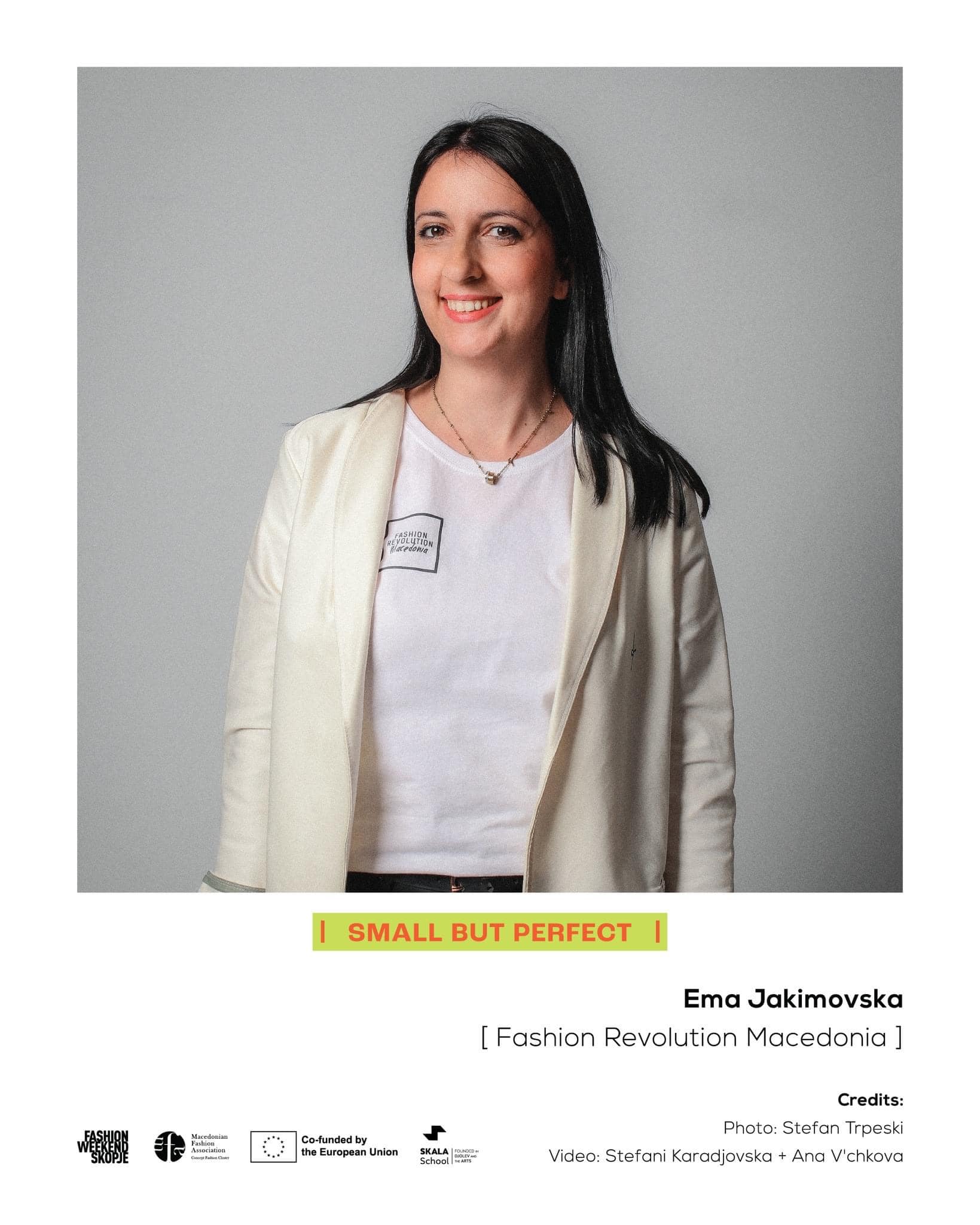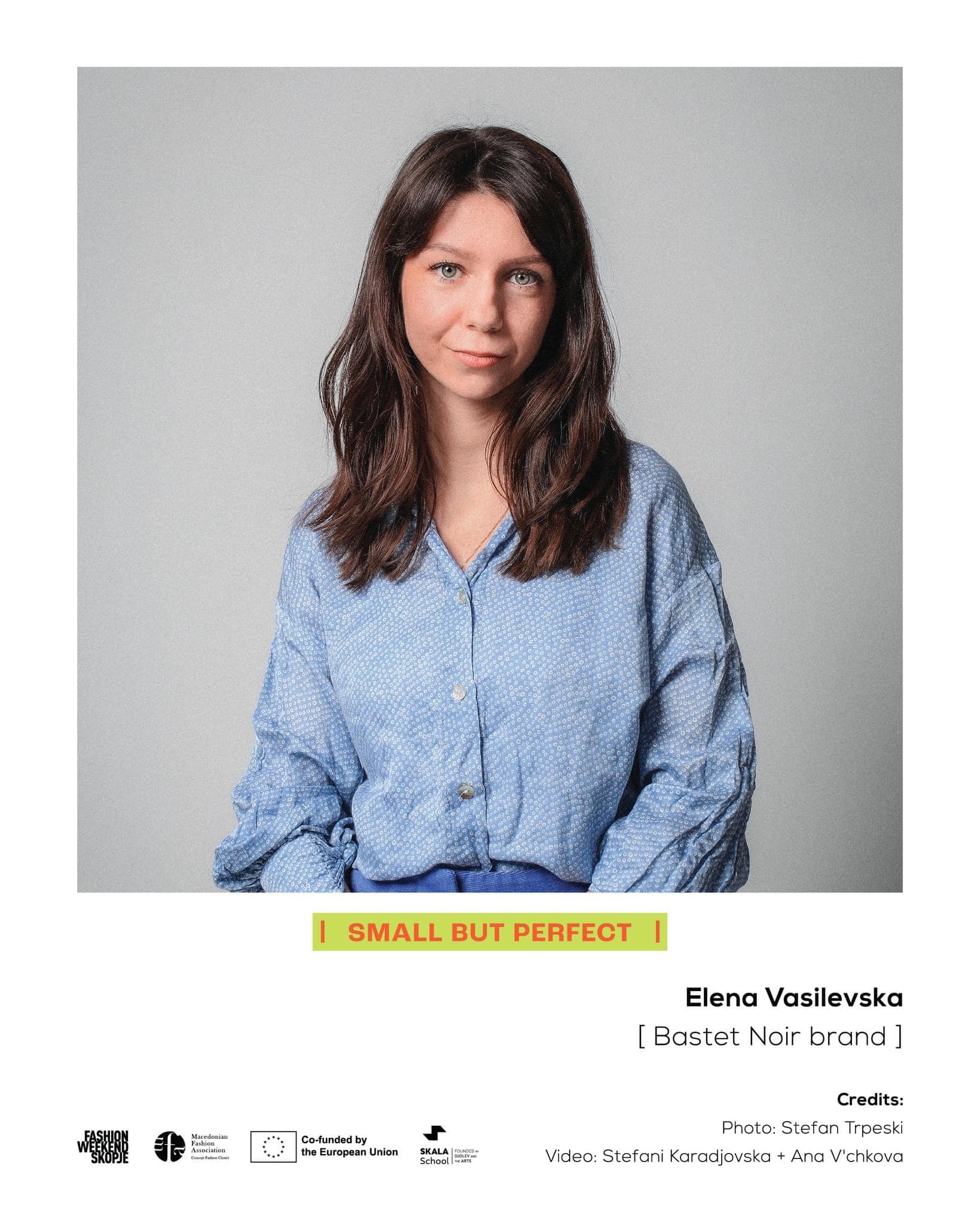The word quality is not so synonymous with luxury, but is a factor of sustainable and responsible development. People should be put before profit – this is one of the conclusions of the public debate that took place in “East Gate Mall – Office Spaces”, and was organized by Macedonian Fashion Association and Fashion Weekend Skopje. The event was part of the “Small but perfect” project, designed as a fashion accelerator to transform circular fashion into sustainable models supported by the EU’s COSME program.
The debate entitled “Small but perfect: the energy of design for people and the environment” was attended by: Aleksandra Spasevska – journalist and activist member of “Fashion Revolution Macedonia”, Nathali Ristovska – designer of sustainable fashion and researcher of new technologies for the production of textile, as well as, founder of the Yovanka brand. Furthermore, the Italian designer Arslan Dodo who is on the top 90 list of world leading designers and companies and who came to Skopje especially for this event, Carlo Stronati – representative of the fashion brand Errea. Moreover, Milena Donevska – brand manager in Magnetik and Alexandra Trpeska, also known as “Majestic” an influencer who represents activism and sustainable fashion.
The circular economy means a progress away from the traditional, linear economic model, which is based on the principle of make-take-consume-discard. This model relies on large quantities of cheap, readily available materials and energy. Not to mention, Aleksandra Spaseska pointed out that a crucial part of this model is planned obsolescence, i.e. deviation from the practice of designing a product so that it has a limited lifespan so that consumers have to buy it again. Quality must be a connecting element that links design to production at the highest level through a complex interconnected chain in action that is not a self-referential situation, but integrated into an efficient and common system.
In this panel, Nathali Ristovska and Aleksandra Trpeska through suggested possible measures such as waste prevention, eco-design and circular mechanisms that can save companies or individuals money while simultaneously reducing overall annual greenhouse gas emissions. Currently, the production of the materials we use daily accounts for 45% of carbon dioxide emissions. The Italian designer Arslan Dodo, shared his experiences with the present audience about his global work that relates to segments of lighting used in the creation of fashion campaigns. Innovations move the world, fashion and design are those factors that have always been pioneers in introducing the new, was his conclusion.
The guest from Italy also held a masterclass dedicated to Italian design in the amphitheater of the Faculty of Mechanical Engineering in Skopje within the framework of the Days of Italian Design.
Key notes from the masterclass centered around moving towards a more circular economy and how that can bring benefits such as reducing pressure on the environment, improving the security of supply of raw materials, increasing competitiveness, stimulating innovation, stimulating economic growth and creating new employment opportunities. In the public debate Milena Donevska emphasized that consumers will get more durable and innovative products that will increase the quality of life and save money in the long run.
The complete lifestyle is important, not just our attitude towards clothing. Every small step counts: such as the use of natural materials and hand-crafting bring us closer to nature; even rice waste, which is our locally produced food can be used in the production of materials and clothes. The longevity of the products and quality workmanship also provide greater importance and opportunity for their further use by the next generations. Additionally, the education of consumers on all possible levels about the principles of sustainability is also just as important. Not to mention, supporting local traditions and small domestic design brands, as well as, establishing an environment for greater transparency of large companies about their contribution or impact on the environment. We all need to be activists and constantly demand accountability from manufacturers. And finally, to illustrate how design can offer excellent solutions for the preservation of our planet, our natural resources, our humanity and our soul” – concluded Prof. Dr. Gordana Vrencoska, who was also the moderator of this debate.
After the Public Talk, we originized the photoshoot with 6 forward looking designers and SME’s with the main goal to showcase circular products and services to inspire the next generation of designers.
Also, we recorded video interviews with the designers and SME’s with the following questions: Who are we? What do we offer? Would you partner with us ? (action for collaboration).
During the next day, we printed and showcased the amazing work during the photo-exhibition. The event spoke loudly and was attractive for bigger audiences.
The video materials we will present during the Fashion Revolution Week: 22-29th April 2023 on Social Media.
The project aim is to provide knoweldge for bigger audiences with opportunities to transition into a more circular economy, opening the horizons and awakening the innate talents of creatives through a SBP programme. The implementation of circular design in our event is done with the goal to educate the community, designers, and brands in order to reduce textiles waste and re-think consumption.
The 26th edition of Fashion Weekend Skopje took place within the “Days of Italian Design”, a worldwide project initiated by the Ministry of Foreign Affairs and International Cooperation through Italian embassies, cultural institutes and trade agencies to promote Italian design and architecture.
This year’s theme was “Quality that enlightens. The energy of design for both people and the environment.
The Project is the part of the #smallbutperfect
Small but Perfectly Formed is a project that accelerates fashion SMEs to transition to circular and sustainable models.
With the contribution of the COSME Programme of the European Union.
“The content of this Public Talk represents the views of the author only and is his/her sole responsibility; it cannot be considered to reflect the views of European Innovation Council and SMEs Executive Agency (EISMEA)or any other body of the European Union or Small But Perfect Consortium partners. The European Commission, the Agency and Small But Perfect Partners do not accept any responsibility for use that may be made of the information it contains.”
Small but Perfectly Formed is a project that accelerates fashion SMEs to transition to circular and sustainable models.
With the contribution of the COSME Programme of the European Union.
“The content of this Public Talk represents the views of the author only and is his/her sole responsibility; it cannot be considered to reflect the views of European Innovation Council and SMEs Executive Agency (EISMEA)or any other body of the European Union or Small But Perfect Consortium partners. The European Commission, the Agency and Small But Perfect Partners do not accept any responsibility for use that may be made of the information it contains.”
Photo SKALA School – Џолев и уметностите & Stefan Trpeski
